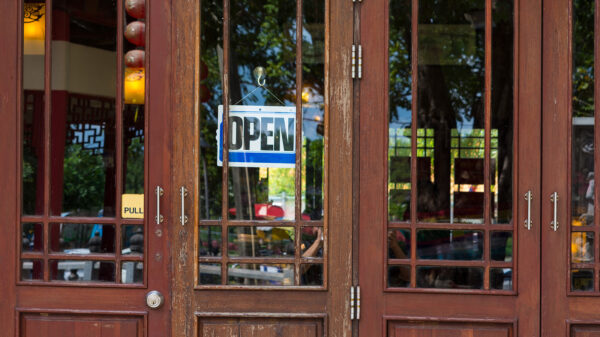Demise. It’s the only sure bet all of us percentage, but it’s grow to be the shadow we dare now not identify. How did this occur? How did one thing as herbal and sacred as demise turn into into a topic of worry and avoidance? Working out this shift—from reverence to worry—provides us the gear to cut back apprehension and reconnect with the meaningfulness of existence.
By means of exploring the historic context of demise and fashionable society’s manner, we will reclaim an crucial reality: Demise isn’t a scientific match—this can be a human one.
How Did We Get Right here?
For hundreds of years, demise was once seen as a sacred and communal revel in. It was once an integral a part of existence, approached with rituals that supplied each convenience and steering for the death and their family members. Households cared for his or her family members at house, and communities got here in combination in enhance. Demise was once a ceremony of passage, full of reverence and that means.
However, during the last 100 years, societal and clinical developments driven demise into hospitals and scientific establishments. It become scientific, remoted, and shrouded in language like “combating sickness” or “shedding battles.” Whilst fashionable drugs certainly saves numerous lives, within the procedure, demise misplaced its sacred position within the cycle of existence. And with this shift, our worry grew—worry of the unknown, worry of struggling, worry of shedding keep an eye on.
The Position of Rituals (and Their Loss)
Conventional cultures embraced demise with rituals that introduced closure, readability, and peace. Whether or not it was once Irish wakes or Tibetan demise prayers, those practices said demise as a herbal conclusion to existence’s tale.
With the decline of such traditions, demise become one thing far away and overseas. The absence of rituals left an opening. With out buildings to steer us thru grief and figuring out, we started to peer demise as an enemy moderately than a trainer.
Why We Concern Demise
On the middle of humanity’s worry of demise lies the unknown. What occurs once we die? What’s going to it really feel like? The uncertainty creates anxiousness. However worry these days could also be amplified by means of societal attitudes and fashionable techniques.
Listed here are some elements that deepen our worry:
- Medicalization of demise: Hospitals have grow to be the principle environment for the tip of existence. Demise feels extra like a failure of remedy than part of existence.
- Language of combat: Phrases like “successful the struggle” in opposition to sickness recommend victory manner averting demise, fostering guilt for the death and false hope for households.
- Center of attention on longevity over high quality: The function of care has shifted to prolonging existence, again and again at the price of well-being and dignity.
Reclaiming Demise as Sacred and Human
To scale back our worry of demise, we will have to reconnect with its sacredness and humanity. Right here’s how:
- Recognize demise overtly. Speaking about demise shouldn’t be taboo. Truthful conversations—whether or not with family members or depended on pros—permit you to articulate your fears, personal tastes, and values. Make a decision subjectively what high quality of existence manner to you and use that as your benchmark for when to make a choice tight symptom control over competitive remedies.
- Perceive end-of-life care. Complicated directives empower folks to make alternatives about their care. By means of outlining your needs, you take away uncertainty for your self and your family members.
- Be informed from historical past. By means of figuring out how earlier generations approached demise with reverence and neighborhood, we will rediscover its herbal, sacred position in our lives.
- Create new rituals. Even though conventional rituals are not part of your tradition or trust gadget, you’ll craft your personal. Whether or not it’s lighting fixtures candles, journaling, or collecting with family members, those rituals may give convenience and that means.
- Grow to be trained. Wisdom dispels worry. Studying in regards to the bodily, psychological, emotional, and religious dimensions of death permits us to peer it as a part of the holistic human revel in, now not an interruption of it.
Non-public Reflections Can Develop into Demise
Listening to tales of a excellent demise supplies tough examples of transformation. Take “Alice,” a lady who overtly mentioned her values together with her circle of relatives and created a complicated directive. By means of doing so, her passing become a blessing of readability and connection. She selected the place she died, who was once provide, and the way she was once cared for. Alice’s demise didn’t diminish her—it mirrored the existence she lived.
When we are facing mortality with love and data, we open a doorway to dwelling extra absolutely.
By means of dealing with demise with braveness, steering, and an open middle, we reclaim the sacredness of each demise and existence itself. In combination, we will trade the narrative and create a greater manner of death now and for long run generations.
It begins with understanding—and accepting—that demise isn’t an finishing, however a profound transition.
Demise doesn’t must be feared. It may be understood, venerated, and embraced with dignity. From that house, we are living—now not in worry, however with the profound freedom to cherish each and every treasured second that we’ve got.
Empower your self. Empower others. In combination, we’re converting the arena.



























![VVS: Meet the Emerging K-Pop Woman Crew Set to Shine Like Diamonds [Teaser Images] – Kpoppie VVS: Meet the Emerging K-Pop Woman Crew Set to Shine Like Diamonds [Teaser Images] – Kpoppie](https://i1.wp.com/kpoppie.com/wp-content/uploads/2025/04/vvs-man-100.jpg?w=100&resize=100,100&ssl=1)







You must be logged in to post a comment Login